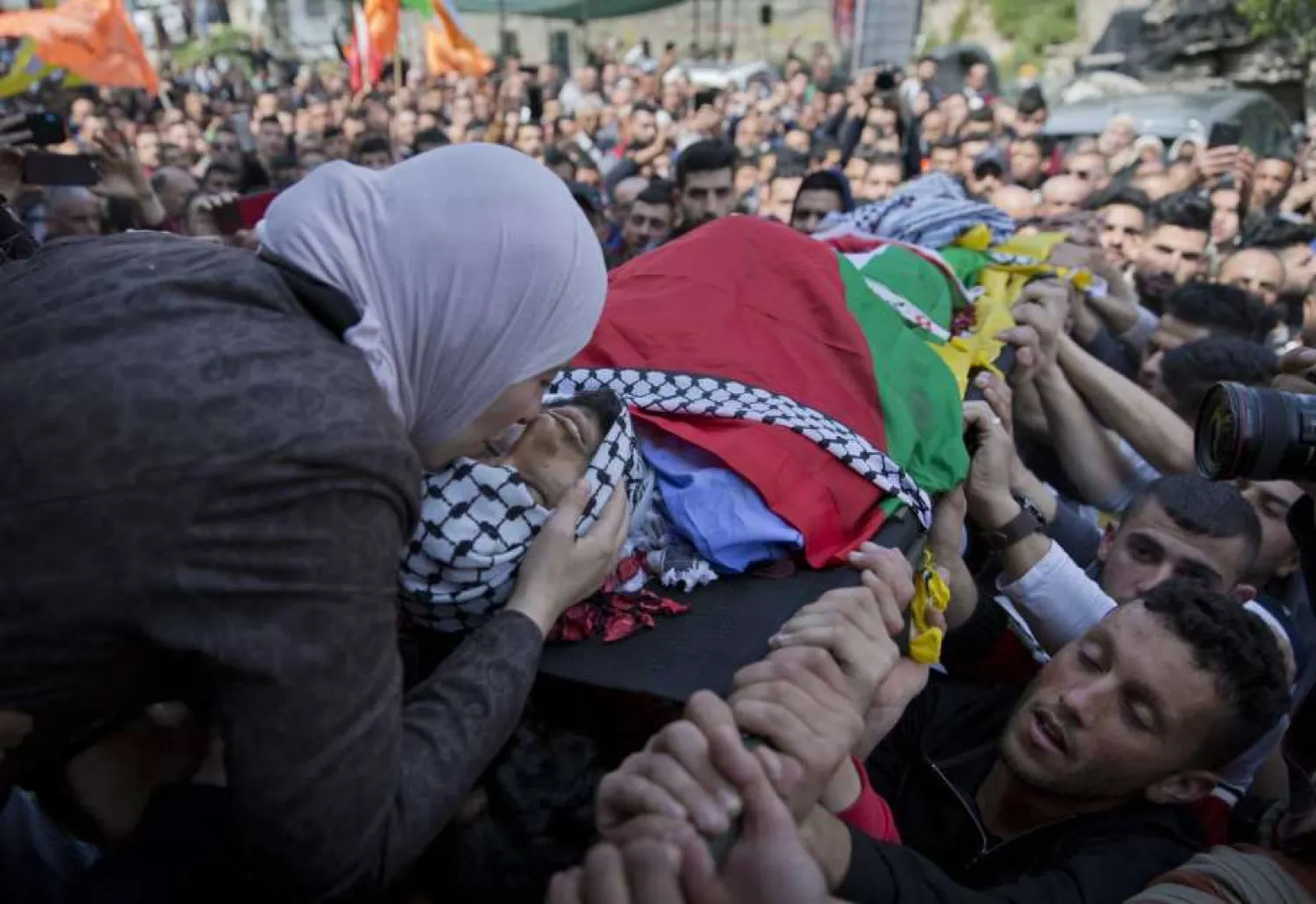Ahmad Manasra was traveling home from a wedding when he spotted a family in distress on the side of a West Bank road. Moments later, the 22-year-old Palestinian was fatally shot while another Palestinian driver was seriously wounded - both by an Israeli soldier in a nearby watchtower.
The shootings are now the focus of a plea bargain offering the soldier three months of community service - a deal that has come under fierce criticism from the victims and their families.
It also revived accusations by Palestinians and human rights workers that Israel's military justice system is hopelessly biased and creates an atmosphere of impunity for soldiers suspected of violent crimes against Palestinians.
While the soldier has claimed he mistook the victims for attackers, and any indictment of a soldier is extremely rare, the proposed deal is now being reviewed by the Israeli Supreme Court.
"When it comes to clashes with the army or the police, it is very very rare that you will find a fair trial," said Shlomo Lecker, an Israeli lawyer who filed the appeal to the high court on behalf of the Palestinian families. Even by what Lecker considers the military´s lenient standards, "it will be hard to justify the sentence that the army is interested in," he said.
The shootings took place on March 20, 2019 near the West Bank town of Bethlehem. At the time, Manasra and three others were in a car, heading home from a wedding. They spotted a parked car and a woman screaming for help on the side of the road.
The woman´s husband, Alaa Ghayadah, had pulled off the road after a traffic dispute with another driver. When Ghayadah got out of his car, a soldier in a nearby guard tower shot him in the stomach, according to witness testimony gathered by the Israeli rights group B´Tselem.
Manasra´s co-travelers took Ghayadah in their car to a hospital, while Manasra offered to drive Ghayadah´s wife and two young daughters behind them. When their car wouldn´t start, he got out of the vehicle and was shot himself, according to B´Tselem. He was pronounced dead at a hospital.
In a statement, the army, quoting from the indictment, said the soldier had opened fire after assuming Ghayadah was throwing stones at Israeli motorists. It said the soldier "wrongly assumed" Manasra was the same stone thrower and fired again. It also said forces had received a report about "the possibility of a terror attack in the area" shortly before the incident.
It said that in the Aug. 17 plea bargain, the soldier was indicted for "causing death by negligence." It said victims were represented in legal proceedings and the various parties "jointly petitioned" for a sentence of "three months imprisonment served through military work," probation and a demotion to the rank of private.
"Complex evidentiary and legal considerations, significant operational circumstances of the incident and the soldier´s willingness to take responsibility were all considered," the army said. "In addition, the rights of the victims of the offense were preserved throughout the proceedings."
The victims strongly disputed the military account and said they never accepted the plea bargain. The military did not explain what appears to be a sharp discrepancy between its claims and the families' view of the plea deal.
Wafa Manasra, Ahmad´s mother, called the deal "unjust."
"The soldier killed my son in cold blood," she said. "My son wasn´t going to carry out any attack. He was going to help others when he was killed."
Ghadayeh, a former tile layer, said he can no longer work because of the severe damage to his stomach. He said he tried to work as a taxi driver but that also was too grueling on his body.
"If the soldier was sentenced to life in prison, that won´t be enough for me," he said.
Critics say potentially criminal shootings of Palestinians rarely result in convictions or even indictments.
B´Tselem, Israel´s leading human rights group, grew so frustrated with the military justice system that in 2016 it halted its decades-long practice of assisting military investigations.
According to the group, the plea bargain results from the first indictment in the death of a Palestinian in the West Bank since a landmark 2016 case in which a soldier was caught on video shooting and killing a badly wounded Palestinian attacker in the head who was lying on the ground. The soldier, Elor Azaria, served nine months in prison for manslaughter. B'Tselem says there have been at least 11 cases over the past two years in which Palestinians who did not pose a threat were killed while fleeing security forces.
The plea bargain is "not an aberration," said Amit Galutz, a spokesman for the group. "It is a policy of whitewashing and of protecting perpetrators instead of their victims."
In Israel, military service is compulsory for most Jewish males, and there is widespread sympathy for young soldiers. Azaria´s trial bitterly divided the country, with top generals saying he should be punished for violating a military code of ethics. But large segments of Israel´s nationalist right, including Prime Minister Benjamin Netanyahu, pushed for leniency.
Emmanuel Gross, a professor emeritus at the University of Haifa´s law school and a former military judge, said military cases are different than civilian cases.
"A soldier finds himself on a battlefield. Therefore he is under constant threat to his life and must be aware to defend himself and his colleagues," he said. "You must take those circumstances under consideration."
Gross said that on the surface, the sentence in the Manasra case appeared to be "lenient and inappropriate." But he said the High Court could determine there were special circumstances that make the plea bargain reasonable.
Lecker, the Palestinians´ lawyer, said the families have few expectations that the plea bargain will be altered. "Just the fact that it will be reviewed by the court is an achievement," he said.









